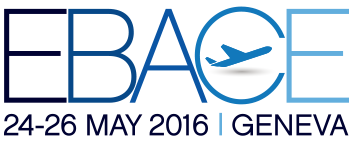In a Complicated Aircraft Market, EBACE2016 Seminar Focuses on Keys for Closing Transactions
23 May 2016
Large aircraft deliveries are down, mid-size deliveries have stalled and some observers are worried about a triple-dip in the European business aircraft market. But the overall picture is more complicated, said Rollie Vincent for JETNET iQ at the EBACE International Transactions Seminar.

In the next few years, Europe could even be a global bright spot, and the 23 May International Aircraft Transactions Seminar at the European Business Aviation Convention & Exhibition (EBACE2016) covered best practices for financing deals, complying with NCC, due diligence, ownership structures and more.
“The markets in Europe are soft right now, but there is actually quite a bit of variation,” said Vincent, an analyst who partners with JETNET on the Intelligence Quarterly (iQ) reports.
While large aircraft operators were more pessimistic about the current business cycle, “small and mid-size aircraft operators are more optimistic today,” said Vincent.
According to JETNET iQ data from May 2016, only 36.6 percent of large aircraft operators thought the aircraft market had already reached its low point and was headed on an upward trajectory, while more than 50 percent of small and medium jet operators thought so.
There are regional variations, too. Within Europe, the economies of the U.K., Spain and other countries on Europe’s periphery were growing faster than Central Europe.
While the last 12 months have shown some signs of aircraft sales on the continent decoupling from GDP growth, Europe actually has had the fastest fleet-to-GDP growth of any region globally. The business aircraft fleet in Europe has grown eight times faster than GDP since 2005.
Today, 24 percent of European operators surveyed by JETNET reported they were highly likely to purchase a new aircraft in the next five years, compared to 19.4 percent of global respondents.
Best Practices for Deal Financing
While transactions been holding steady, experts advised that aircraft deals can be targets for international cybercrime and money laundering.
“These are attempts by bad guys to sell aircraft they don’t own, or buy aircraft with bad checks, using a combination of social engineering and hacking to persuade someone to send money to a fraudulent account,” explained Scott McCreary, an escrow agent with McAfee & Taft.
McCreary and fellow panelists described a handful of actual email fraud schemes involving aircraft transactions. A common ploy was to convince escrow agents to deposit a fraudulent check, then call the deal off and ask for the funds back.
“The bad guys really do their homework,” said McCreary, “so it’s important to do our due diligence, to gather the Know Your Customer information on all the parties to an aircraft transaction.”
The seminar ended with an aircraft financing panel, with experts covering trends in residual values, the availability of financing and the effect of regulation on the market.

